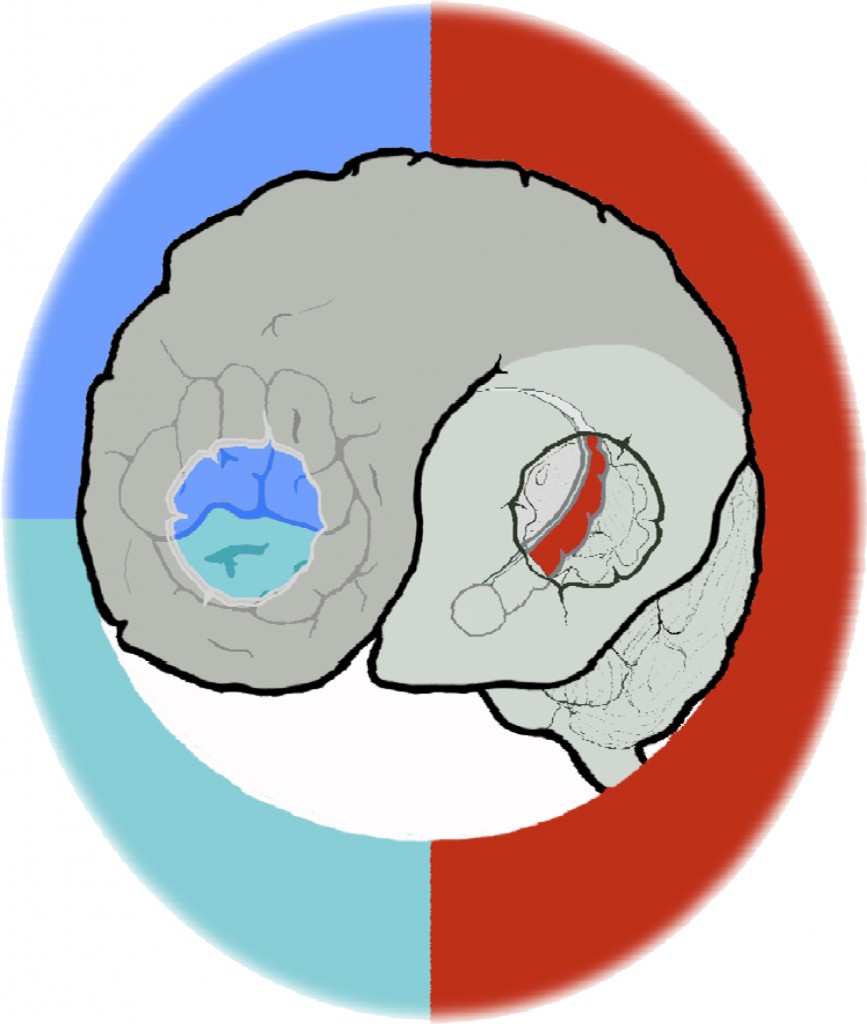A schematic plot of adaptive balance between the hippocampal (‘hot’ in red) and prefrontal (‘cold’ in blue) memory systems under ever changing environmental challenges and stress. The hippocampal memory system, including the hippocampus, parahippocampal regions and the amygdala, contributes to rapid, flexible learning and memory through binding discrete events distributed over neocortical areas. This system, however, is highly vulnerable to emotion, stress and psychopathological conditions, so-called a ‘hot’ system. The ventral and lateral prefrontal cortex, often named as a ‘cold’ system, contributes to facilitating rapid learning and memory through its role in thoughtful and delicate processes such as semantic elaboration and executive functions. The hippocampal and prefrontal memory systems don’t work separately. Rather, they dynamically interplay and balance with each other. This adaptive shift in their functioning is reminiscent of the magic balance of “Yin-Yang” in Chinese philosophy. Under stressful and anxious situations, the hippocampal-dependent system is highly sensitive to register immediately important information as the cost of specificity, and the prefrontal memory system gets suppressed and lends its priority to seeking for rapid adaptation. This adaptive interaction has clear benefit of rapid adaptation and survival. @Adapted from Dr. Qin’s doctoral dissertation 'Adaptive Memory: Imaging Medial Temporal and Prefrontal Memory Systems; ISBN-9491027026'
[ favorite | 0 ]
The Neuro Bureau
neuro-collaboration in action

